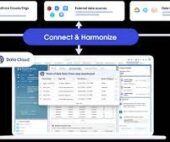ChatGPT, an AI chatbot and Large Language Model developed by OpenAI with support from Microsoft, employs Natural Language Processing (NLP) to engage with users and provide responses by mining a vast database compiled from millions of websites. Its interactions are designed to be natural and conversational, but the accuracy may vary depending on the specificity of the user’s inquiry.

In the context of the Salesforce ecosystem, the impact of ChatGPT can lead to both positive and negative outcomes. For example, it excels in generating code such as validation rules, formulas, and Apex classes. However, caution is advised when relying on it for declarative results or comprehensive answers. Junior developers may face challenges, as ChatGPT, drawing insights from extensive code samples, has the potential to outperform them in code writing. It is worth acknowledging that Salesforce has been integrating artificial intelligence since 2017.
When it comes to output, ChatGPT is a little bit like canned cheese and string cheese. They are both “cheese” but neither one is cheese.
For business analysts and consultants, ChatGPT can be a valuable resource for crafting generic proposals or suggesting process steps. Nevertheless, a measured reliance on its outputs is recommended. Architects, in contrast, may find limited value in ChatGPT, lacking the necessary experience and context for their role. Additionally, ChatGPT can be utilized to generate initial drafts of documents like training materials or business cases, but users must specify the rationale behind suggested changes, as ChatGPT lacks intrinsic understanding.

It is crucial to clarify that ChatGPT functions as a content development tool and should not be confused with Salesforce Service Cloud Voice and conventional chatbots. Awareness of Salesforce’s My Domain changes is essential for those currently using chatbots, as these changes can impact their functionality.
For marketers and content writers, it is essential to recognize that Large Language Models like ChatGPT may accentuate social biases and produce potentially inaccurate results. This stems from the questionable data found in some of the millions of websites that contribute to its training. In summary, while ChatGPT can be a beneficial tool, it is imperative to validate and verify its results before relying on them.













